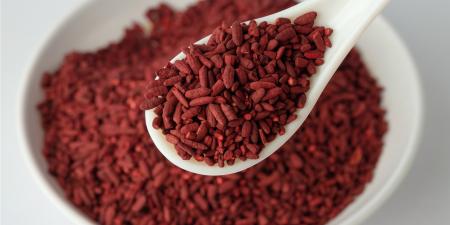Case
Yawning, Dr. Grey strolled into her office, smoothed her coat over the back of her chair, and switched on her computer. It was Monday morning at her internal medicine clinic, and as she scrolled through the patient list for the day her eyes paused at one in particular. Ms. Freidlander was scheduled to see her at 2:00 for GI pain…again. It was her third visit this month alone, and Dr. Grey tamped down the jolt of frustration that coursed through her.
Ms. Freidlander, a 40-year-old seamstress who was raising two children on her own, came in frequently with a variety of pains and symptoms. A few months before it had been back pain, but lately she had been visiting over and over again for abdominal discomfort and frequent diarrhea. Despite negative blood work, stool studies, and colonoscopy, she was convinced that something was terribly wrong, but Dr. Grey felt strongly that it was likely related to Ms. Freidlander’s undiagnosed chronic anxiety.
Dr. Grey hesitated for a moment, recalling that Ms. Freidlander’s back pain subsided after her chiropractor instructed her to begin herbal supplements. She was fairly certain that this success was due to the placebo effect, and wondered whether Ms. Freidlander’s abdominal pain would respond similarly. She had read that roughly half of internists and rheumatologists prescribe placebos regularly; in the form of sugar pills, antibiotics, over-the-counter analgesics, vitamins, and supplements. She had never done so, however, and had always felt that it was a violation of informed patient autonomy. If and when patients find out about placebos, the discovery surely has the potential to erode their trust in all physicians.
It was clear, however, that what Ms. Freidlander was feeling constituted legitimate distress, and if there were a relatively safe method to eradicate it—any method—should it not be attempted? Another bottle of herbal supplements or vitamins could theoretically cease her discomfort with few to no side effects. Was that not worth trying?
Commentary
This case study describes a common scenario: a patient (Ms. Freidlander) with an undiagnosed mental health disorder seeks attention from multiple medical experts (Dr. Grey et al.). Upon finding no evidence of pathologic process, the experts wonder if they should offer the patient a placebo to trick her into feeling better temporarily. In my opinion, this is a classic example of a patient’s receiving substandard care in our broken health care system.
Perverse financial incentives have caused the American health care system to become overspecialized, resulting in fragmented care [1], overutilization of resources, and increased health care costs [2]. While the system is incredibly good at solving specific problems (e.g. major trauma), it is exceedingly bad at addressing complex biopsychosocial dilemmas. Patients like Ms. Freidlander end up seeking help in all the wrong places—without proper guidance from their frazzled health care professionals.
While I have the utmost sympathy for Dr. Grey’s predicament (she is a gastroenterologist presented with a patient whose underlying disorder is outside of her field of expertise), I cannot condone her proposed solution: to offer a non-evidence-based “quick fix” for a long-standing problem. Dr. Grey believes Ms. Freidlander’s relief from previous psychogenic complaints was short-lived. A more appropriate response would be to direct Ms. Freidlander to a more likely source of permanent relief—and that requires the correct diagnosis and an evidence-based treatment plan.
Finding The Root Cause of Ms. Freidlander’s Problem
In addition to genetic predisposition and medical history, biopsychosocial factors—such as childhood neglect and emotional trauma, cultural beliefs about sickness, socioeconomic status, and social isolation or lack of social support—can exert negative influence on many aspects of one's health, including (a) mental health, e.g., anxiety and depression, (b) health behaviors, e.g., poor eating habits, sedentary lifestyle, smoking, and lack of self-care, (c) chronic medical disorders, and (d) adverse health outcomes, e.g., lowered quality of life, functional impairment, or a high symptom burden. And each of these behaviors and outcomes can affect each of the others. Depression, for example, can increase the likelihood that one will adopt coping mechanisms (overeating, smoking, or drinking) that will be harmful to one’s physical health; persistent anxiety can cause physiological damage [3].
Mental health professionals and primary care physicians are trained to approach patients from a holistic perspective, understanding that their physical symptoms may be related to complex risk factors, chronic medical disorders, and health behaviors. A thorough review of Ms. Freidlander’s medical and social history could reveal an abusive relationship, addiction disorder, sedentary lifestyle, social isolation, or severe stress (which can be related to finances, children, relatives, or any life event). Any number of these could be contributing to her discomfort—and they each require a different kind of intervention for long-term success.
For argument’s sake, let’s assume that Dr. Grey is correct in her conclusion that Ms. Freidlander suffers from an anxiety disorder and that her pain symptoms are manifestations of anxiety. We know that the goal of every physician is to provide the very best evidence-based care for patients. The question then becomes—what does the evidence suggest might work best for this patient?
Evidence-Based Treatments For Anxiety
Talk therapy. A systematic review of 14 meta-analyses of the effects of psychotherapeutic interventions versus medical interventions (for the treatment of mental health disorders) consistently showed “talk therapy” to have a far larger effect than medical treatments [4]. Evidence suggests that talk therapy might be as much as 8.5 times more effective than medications (which are proven in clinical studies to be more effective than placebos) in the treatment of some mental health disorders.
Not only is talk therapy likely to be more effective for patients like Ms. Freidlander than herbal supplements intended as placebos, research has documented a consistent trend toward larger effect sizes at follow-up for patients undergoing psychodynamic therapy. It is postulated that the therapy sets in motion psychological processes that lead to ongoing change, even after therapy has ended.
Regular follow-up. There is mounting evidence that chronic conditions (such as anxiety disorders and diabetes) are most successfully managed with a team approach. Rushika Ferbandopulle and others have found that enhanced patient contact, follow-up, and regular communication can reduce emergency room visits, hospital admissions, and health care costs by as much as 25 percent [5].
Physical activity. Regular physical activity, especially aerobic exercise, is well known to reduce anxiety symptoms [6].
Dietary interventions. Evidence suggests that caffeine intake and ephedrine-related OTC herbal remedies can increase anxiety symptoms [7].
Sleep hygiene. Regular sleep is important in reducing anxiety symptoms. Poor sleep hygiene is associated with more chronic forms of anxiety [8].
Antidepressants. Although I believe that antidepressant medications should be a treatment of last resort, current guidelines for managing generalized anxiety disorder suggest that there is a role for medications, specifically serotonin reuptake inhibitors, serotonin-norepinephrine reuptake inhibitors, and nonsedating tricyclic antidepressants [9, 10].
Conclusion
Millions of patients like Ms. Freidlander and their physicians are using the health care system inappropriately to treat mental health needs. Proper diagnosis, beginning with a careful medical, social, and family history (including a review of health behaviors, risk factors, and basic lifestyle choices), is critical in helping them to find an evidence-based treatment plan. Ample evidence suggests that talk therapy, consistent follow-up, physical activity, dietary changes, improved sleep hygiene, and antidepressant medications may improve symptoms of anxiety.
It is not appropriate to offer an untested treatment to a patient when there are proven options that have not yet been tried. Furthermore, when such a treatment requires intentionally misleading a patient about the efficacy of the placebo, patient autonomy is violated—a breach of medical ethics.
Dr. Grey’s temptation to offer Ms. Freidlander a quick placebo “fix” for what Dr. Grey believes to be her long-standing and complex anxiety is bad medicine on many levels. First, it delays the patient from getting care that may help her. Second, it gives her the wrong impression that she has been definitively diagnosed, and with something most likely unrelated to the true cause of her symptoms. Third, it may result in increased health care costs as the patient continues down additional diagnostic “rabbit holes.” And finally, Dr. Grey’s behavior violates the trust of a patient who is relying on her honest judgment.
In the end, I believe that Dr. George Lundberg had it right: “There is no alternative medicine. There is only scientifically proven, evidence-based medicine supported by solid data or unproven medicine, for which scientific evidence is lacking” [11]. Evidence is lacking for the use of placebos (herbal or otherwise) in this patient’s case, and therefore they should not be offered.
References
-
Arvantes J. Center for Studying Health System Change: Lack of payment reform leads to fragmented care. AAFP News Now. July 16, 2008. http://www.aafp.org/online/en/home/publications/news/news-now/professional-issues/20080716hsc-reform.html. Accessed May 9, 2011.
-
Bach PB. Medicare, start the bidding. New York Times. June 3, 2009. http://www.nytimes.com/2009/06/04/opinion/04bach.html?_r=2&partner=rss&emc=rss&pagewanted=all. Accessed May 9, 2011.
-
Druss BG, Walker ER. Mental disorders and medical comorbidity. Robert Wood Johnson Foundation and The Synthesis Project. http://www.rwjf.org/files/research/021011.policysynthesis.mentalhealth.report.pdf. Accessed May 9, 2011.
-
Shedler J. The efficacy of psychodynamic psychotherapy. Am Psychol. 2010;65(2):98-109.http://www.apa.org/pubs/journals/releases/amp-65-2-shedler.pdf. Accessed May 9, 2011.
-
Gawande A. The hot spotters. New Yorker. January 24, 2011. http://www.newyorker.com/reporting/2011/01/24/110124fa_fact_gawande?currentPage=all. Accessed May 9, 2011.
-
Landers DM. The influence of exercise on mental health. President’s Council on Fitness, Sports and Nutrition. http://www.fitness.gov/mentalhealth.htm. Accessed May 9, 2011.
- Nardi AE, Lopes FL, Freire RC, et al. Panic disorder and social anxiety disorder subtypes in a caffeine challenge test. Psychiatry Res. 2009;169(2):149-153.
- Marcks BA, Weisberg RB, Edelen MO, Keller MB. The relationship between sleep disturbance and the course of anxiety disorders in primary care patients. Psychiatry Res. 2010;178(3):487-492.
- Allgulander C, Bandelow B, Hollander E, et al. WCA recommendations for the long-term treatment of generalized anxiety disorder. CNS Spectr. 2003;8(8 Suppl 1):53-61.
-
Yates WR. Anxiety disorders treatment and management. Medscape Reference. http://emedicine.medscape.com/article/286227-treatment. Accessed May 9, 2011.
- Fontanarosa PB, Lundberg GD. Alternative medicine meet science. JAMA. 1998;280(18):1618-1619.



